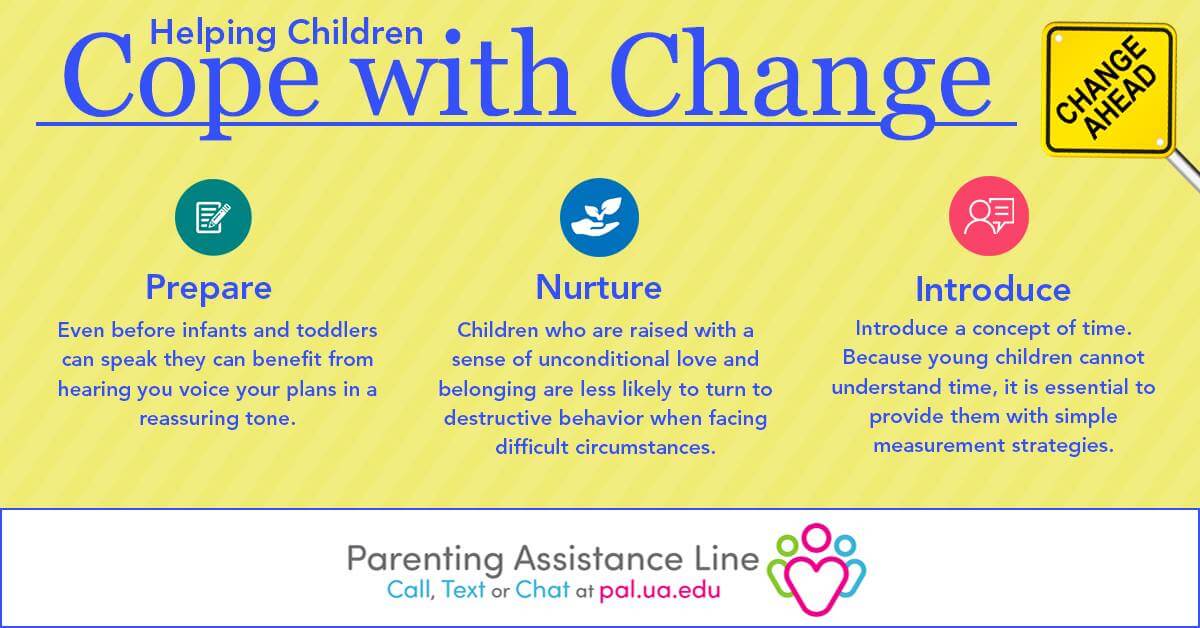Change during childhood is inevitable! As parents it is our responsibility to teach our children resiliency- the ability to rise above challenges and move forward with confidence.
By following these tips we can help our children develop the coping strategies necessary to thrive in an ever-changing world:
- Introduce the concept of time: Because young children cannot understand time, it is essential to provide them with simple measurement strategies. Use kitchen timers for clean up times, activity transitions, and morning rituals. Allow your child to pick a calendar, post it in a central location, and help them keep track of activities, birthdays, holidays and vacations. Give them verbal warnings and countdowns when they must leave an enjoyable location. And when they are enduring a less than pleasant experience, help them to understand it won’t last forever!
- Prepare children for what may happen: Even before infants and toddlers can speak they can benefit from hearing you voice your plans in a reassuring tone. Older children like to be told what to expect from their day and the circumstances they will encounter. Provide them with a short explanation of where you will be going and what may happen along the Many tantrums can be avoided if you provide simple reminders throughout the day.
- Keep daily routines: From infancy through adolescence children do best when they feel life is predictable. They derive a sense of security and well-being from knowing how the adults in their lives will behave and what tends to happen from day to day.
- Nurture a strong sense of family and community: Children who are raised with a sense of unconditional love and belonging are less likely to turn to destructive behaviors when facing difficult life circumstances. Reassure your child that no matter what happens they can always count on their family for support and understanding.
- Promote exploration and discovery: Encourage your child to explore a wide range of interests and activities. Diverse circumstances and experiences provide a fundamental base which prepares children for change and helps them develop self-confidence.
- Point out the positives: While not all change is welcome, if we look hard enough we can find the silver lining. If your child is distressed encourage them to talk about their feelings and seek to point out any and all positive aspects of the situation.
- Set a good example: Nothing you say is as important as what your children see you do. If you maintain self-control and an optimistic attitude during stressful times they will have an appropriate model to follow.







